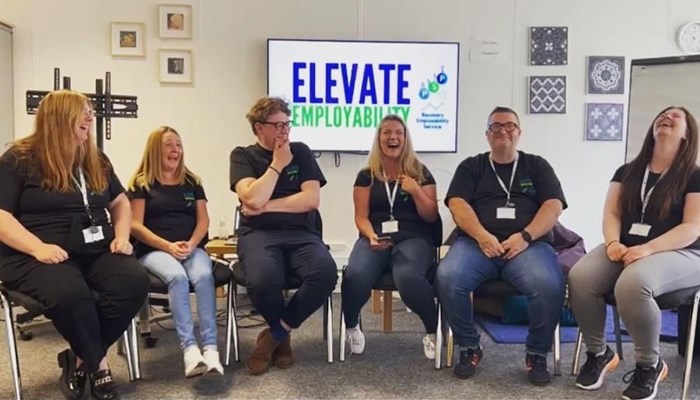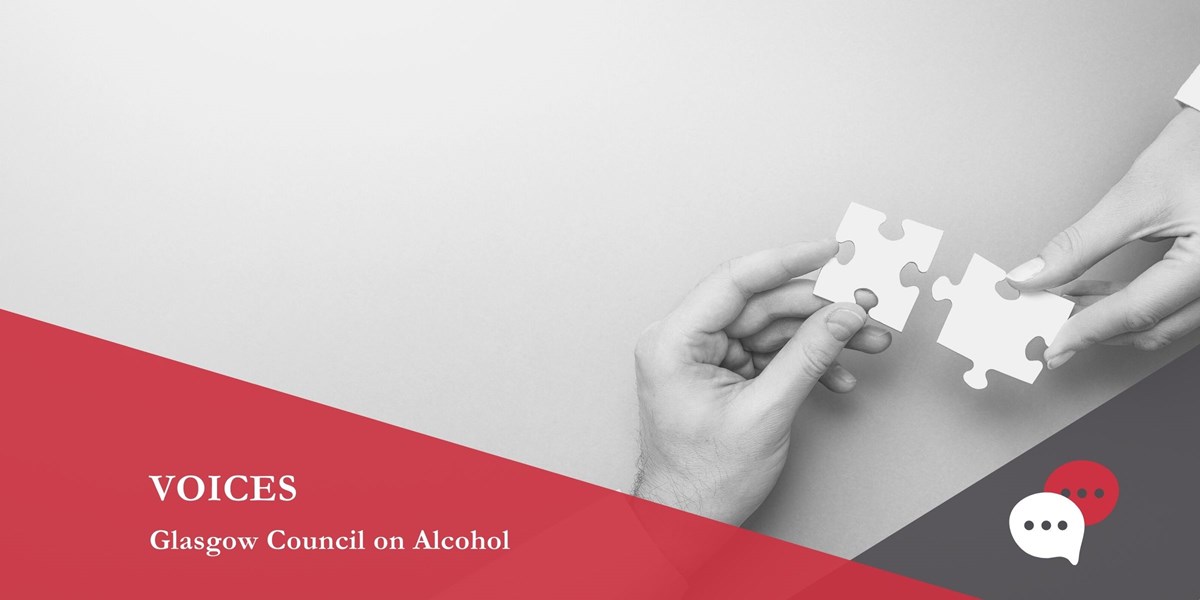- What is your organisation working to achieve?
Elevate-Glasgow is an Employability Public Social Partnership for individuals in recovery from addictions which involves 30 organisations. Glasgow Council on Alcohol is the lead agency supporting the partners within the PSP. Elevate is funded by The Corra Foundation and The Robertson Trust.
Elevate’s aim is to empower individuals who are in or affected by drug and alcohol issues to become more self-reliant through improving confidence, skills, and employability prospects.
- Where are you focusing your support right now?
Elevate deliver a variety of employability support services including personal development, training and volunteering experiences, either directly through Elevate or through our partner organisations. The PSP has created a unique, person-centered support scheme where the PSP tailor itself around the individuals’ need and aspirations, rather than following step-by-step guidance and having expectations of where they should be in their recovery.
Offering a person-centered approach, the Employability Support Workers will do a variety of work with participants depending on their needs from accompanying them to DWP or housing appointments, to making sure their CV is up to date and going through interview preparation. They will look to address both the real and perceived barriers that affect people including poor mental health, homelessness, trauma, criminality, and adverse childhood experiences. Each participant is unique, and we treat everyone as an individual with dignity and respect. Employability Support Workers, work very intensively with participants and support them right the way through their journey into employment and offer ongoing support once they enter the workplace.
- How do poverty and trauma figure in your work?
Poverty and trauma sadly are at the heart of most of the issues which have caused individuals to find ways to self medicate through alcohol and/or drug use. It is imperative that we strive to find opportunities not only to break this cycle, but also of intergenerational abuse and trauma.
Poverty is a key factor in the causation of substance use. As such our ability to work with individuals to find realistic and achievable goals, enables people to gain paid employment. Through their ability to develop skills along the way ranging from personal development, training and volunteering which are crucial skills for life. The people who access our service often have experiences of multiple areas of trauma from childhood experiences to current situations not to mention poverty and with the increase in costs during this cost-of-living crisis, we are deeply worried that this will have yet further and more significant impacts on our communities.
We work in a trauma-informed way to help reduce the risks of re-traumatisation for people who use our services. This is key to helping people feel they are safe and able to work towards the issues which have impacted them to this point.
"There is the saying about how we are getting good at picking people out of the river, but have we stopped to address the real reason they fell in the river upstream in the first place. This means a fundamental review of polices and real practical help in the early years."
- How can funders support your work?
Funders supporting the networking opportunities with partners.
Longer-term funding initiatives and more time of notice at the end of a contract. For example, if you are working in a 5-year contract, then the retender or refunding should have happened by year 4 so the service can plan for strategy or even shut down.
Understanding it is not a quick fix and to work with people to address these issues and make lasting change takes time. People do not always neatly fit into funding boxes as they are multifaceted. Funders recognising that a genuine person-centered approach is the only meaningful way to make lasting change and particularly when confronting the multiple issues of poverty, addiction, isolation, poor mental health and trauma. It is essential that we record not only the stats which are so sought after but that we recognise the value in the softer outcomes and use a qualitative approach.
- What changes would you like to see in your area of focus during the next five years?
Focus on the impact of alcohol and drugs separately as the pathway to recovery is very different for each. In alcohol recovery, over 65% of individuals do not identify with traditional recovery movements which means they are far greater at risk of missing access to support.
The commitment to hearing the voices of lived experience is vital and a welcome focus however people also have the right to be forgotten. It is important that we look at different ways of engaging with lived and living experience without it becoming tokenism.
We would like to see the end of the dreaded ‘Pipeline system’ where people are treated as stats and goals rather than holistically with a genuine person centered approach which consistently evidences better outcomes for the individuals.
- What long-term system changes would best address the issues?
Earlier intervention to an Elevate programme for example as a preventative measure within schools both primary and secondary. This would give skills development and a rights-based approach as part of the fundamentals of young people's skills based as they progress through education. This would enable young people to develop in a way that would allow them to be in a strongest position to tackle life’s other challenges such as poverty, trauma and addiction with the ultimately goal of enabling a clearer pathway for employability support, volunteering, education, and training.
There is the saying about how we are getting good at picking people out of the river, but have we stopped to address the real reason they fell in the river upstream in the first place. This means a fundamental review of polices and real practical help in the early years. If we can support someone then this will mean they will have the skills to deal with trauma, address multigenerational trauma and deal with poverty to make lasting change. This all takes time and short funding cycles do not support this. This is why we are delighted to be working with The Robertson Trust who understand that to make a difference we need to time to do the work.

How Glasgow Council on Alcohol's work fits with our 2020-2030 strategy
Glasgow Council on Alcohol is a well-established charity, with a successful track record of delivering services to reduce the impacts of alcohol and substance misuse. As Lesley mentioned above, poverty is a key factor in the cause of substance misuse and through our strategy, we are interested in supporting work that aims to mitigate and reduce the negative impacts this has on individuals.
We are also keen to support work that is community-based and places people at the heart of their design and delivery. Glasgow Council on Alcohol operates with a co-production group called Elevators made up of key stakeholders, current participants, and those who have previously received support, in order to ensure those with lived experience are represented in their decision-making. We know that community-based support plays a vital role in ensuring that people have access to a network of support that will allow them to engage in sustainable recovery and build positive relationships to help achieve their goals.
Gillian Morton
Funding Officer


